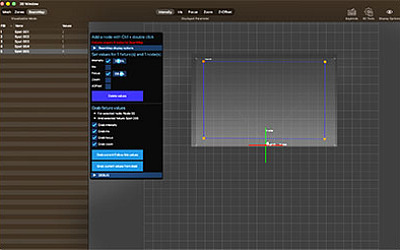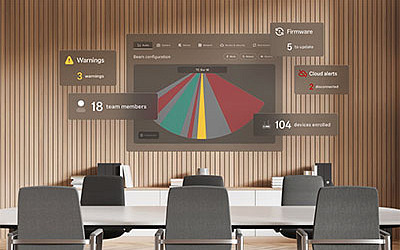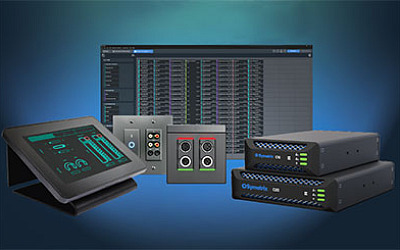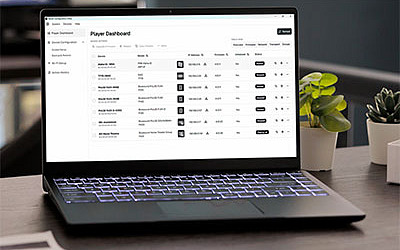RCF has issued an upgrade to its RDNet networked management platform, supporting comprehensive control and monitoring for sound systems from small to arena-sized, including complex and extended installations.
 RDNet provides intuitive control and monitoring of every connected device/object in an RCF audio system. RDNet control can now operate as RDNet-OE (Over Ethernet). Initially deployed on XPS amplifiers, RDNet-OE integrates RDNet into an existing Ethernet infrastructure for control of networked devices throughout a large venue or a facility with networked gear in diverse locations. RDNet-OE runs simultaneously with and in parallel to RDNet control of devices running on RCF’s proprietary network protocol and connected to the host computer via Control2 or Control8 interfaces.
RDNet provides intuitive control and monitoring of every connected device/object in an RCF audio system. RDNet control can now operate as RDNet-OE (Over Ethernet). Initially deployed on XPS amplifiers, RDNet-OE integrates RDNet into an existing Ethernet infrastructure for control of networked devices throughout a large venue or a facility with networked gear in diverse locations. RDNet-OE runs simultaneously with and in parallel to RDNet control of devices running on RCF’s proprietary network protocol and connected to the host computer via Control2 or Control8 interfaces.
RDNet version 5 brings a streamlined workflow for grouping self- and externally-powered systems with colour coding for ease of identification. Device discovery now has quicker drag-and-drop functionality, making it easy to manage hybrid systems such as a configuration using both RCF GTX and TTL loudspeakers.
New control and display capabilities of RDNet are a result of enhanced integration with RDNet Measure, RCF’s four-input dual-channel FFT audio analyser able to measure magnitude, phase, RTA, coherence and impulse response that supplants the need for external analysis software. The improved Measure-enhanced user interface includes an advanced EQ visualisation with amplitude/phase response plots and real-time FFT analysis, while the new Overall function simulates EQ response over Phase/Magnitude measurements.
The timesaving Automatic LF Alignment subwoofer group phase adjust function and Fill/Delay Align temporal alignment function allow large systems to be quickly aligned directly from system loudspeaker group (line array, subs, clusters or fills) impulse response measurements.
RDNet version 5 also introduces a new cloud infrastructure to save and recall projects and measurements remotely.
System sound design, configuration, setup and optimisation are straightforward, including acoustic simulation of the array configuration. The software provides the system curvature and weight, system rigging points and cabinet angles required for successful system deployment. Guided subwoofer configurations help engineers to set up subwoofer Cardioids, Arcs or EndFire configurations in a single pass, while the Bass Shaper function fine-tunes the desired timbre on low frequencies. An additional advanced feature is an incremental control that shapes the Air Absorption Compensation to maintain sonic character with changes in humidity or temperature, such as with a soundcheck on a sunny day and a concert on a humid night.
RDNet runs on Windows computers; version 5 is available now as a free download.
More: www.rcf.it



